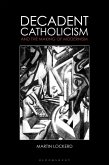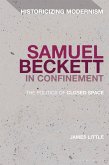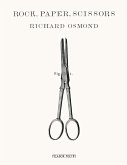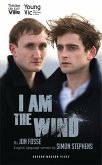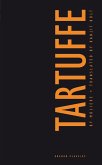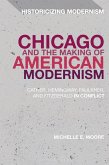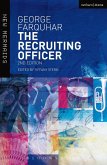Tracing the movement of literary decadence from the writers of the fin de siècle - Oscar Wilde, Aubrey Beardsley, Ernest Dowson, and Lionel Johnson - to the modernist writers of the following generation, this book charts the legacy of decadent Catholicism in the fiction and poetry of British and Irish modernists. Linking the later writers with their literary predecessors, Martin Lockerd examines the shifts in representation of Catholic decadence in the works of W. B. Yeats through Ezra Pound to T.S. Eliot; the adoption and transformation of anti-Catholicism in Irish writers George Moore and James Joyce; the Catholic literary revival as portrayed in Evelyn Waugh's Brideshead Revisited; and the attraction to decadent Catholicism still felt by postmodernist writers D.B.C. Pierre and Alan Hollinghurst.
Drawing on new archival research, this study revisits some of the central works of modernist literature and undermines existing myths of modernist newness and secularism to supplant them with a record of spiritual turmoil, metaphysical uncertainty, and a project of cultural subversion that paradoxically relied upon the institutional bulwark of European Christianity. Lockerd explores the aesthetic, sexual, and political implications of the relationship between decadent art and Catholicism as it found a new voice in the works of iconoclastic modernist writers.
Drawing on new archival research, this study revisits some of the central works of modernist literature and undermines existing myths of modernist newness and secularism to supplant them with a record of spiritual turmoil, metaphysical uncertainty, and a project of cultural subversion that paradoxically relied upon the institutional bulwark of European Christianity. Lockerd explores the aesthetic, sexual, and political implications of the relationship between decadent art and Catholicism as it found a new voice in the works of iconoclastic modernist writers.



